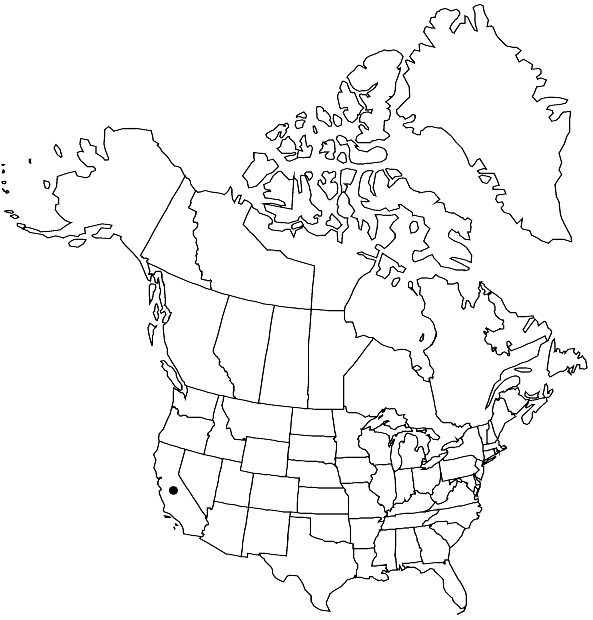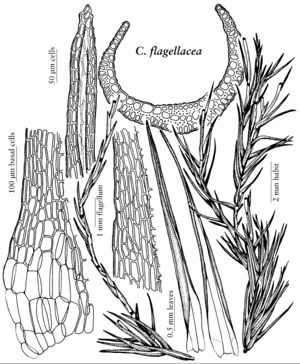Campylopodiella flagellacea
Taxon 37: 968. 1988,.
Plants erect, yellowish green, in tufts. Stems 3–15 mm, radiculose. Leaves erect-patent when wet, appressed when dry, 1.8–2.3 mm, 5–8 times as long as wide, lanceolate, gradually contracted, margins entire, only slightly denticulate at the extreme apex; costa filling 1/2–2/3 of the leaf base, 155 µm wide and indistinctly delimited at base, filling most parts of the leaf apex, excurrent, in transverse-section with large adaxial and abaxial hyalocysts, a median band of stereids and 2–4 stereids adaxially; alar cells hyaline or brownish, often 2-stratose, slightly inflated; basal laminal cells in about 6 rows, rectangular, 15–40 × 10–16 µm, narrower at margins; distal laminal cells rectangular, 13–30 × 4–12 µm.
Habitat: Soil, earth covered rocks, bases of trees, moderate elevations (300-500 m)
Distribution

Calif., Mexico, Central America, South America (Andes)
Discussion
Sporophytes of Campylopodiella flagellacea have been found only once, in South America. The only North American record was collected on a seeping roadside rock in Trinity County (Shevock 17741, BONN). That specimen differs from Central American specimens in its more compact tufts and the lack of flagelliferous branches. The species was earlier regarded as a sterile flagelliferous expression of C. stenocarpa by M. Padberg and J.-P. Frahm (1985), but later was treated as separate by Frahm (1991). It differs from C. stenocarpa in its sterile condition, shorter leaves, narrower lamina, and more distinct alar cells.
Selected References
None.
